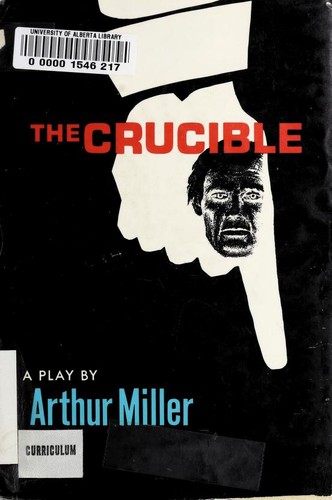"Now by God's grace, the shining sun is up, and them that fear not light will surely praise it." (Judge Danforth)
I didn't expect to like this book. Mostly because it was a required reading for school and because the cover looked sad.
But I loved this book!
This play revolves around a group of girls who are accused of witchcraft and thereafter starts to accuse and persecute other citizens of Salem on false basis.
I'm a History nerd and a fantasy nerd. This book deals with many historic aspects, namely, the Salem witchcraft trails of 1692 and the era of McCarthyism. It also deals with theocracy and politics. The History student in me jumped for joy! Even although this play has no fantastical aspects to it, it does dealt with the superstitions associated with witchcraft and I enjoyed this as well.
The Crucible is a scary book. It deals with themes of mass hysteria, paranoia, deaths especially those of the innocent, unaccountable leaders who want to hide the motives and consequences of their actions and a bunch of terrible teenage girls.
From this book emerges a tragic hero, John Procter, a straight-forward man who embraces individuality and whose only sin is his downfall. I admired his resilience, his guilt, his need to make things right even if it damned his reputation and his search for redemption. But on another level, I couldn't condone his actions when it came to his fatal sin.
This leads to the problem that I had with this book. Even although I understand that women were treated as possessions, house holders and child-bearers in the past, these aspects did not sit well with me. I couldn't admire this book for presenting an adulteress man as a hero, while presenting women in a negative light. Even although I understand it, I don't like it.
All in all, this play is A+ Literature!
